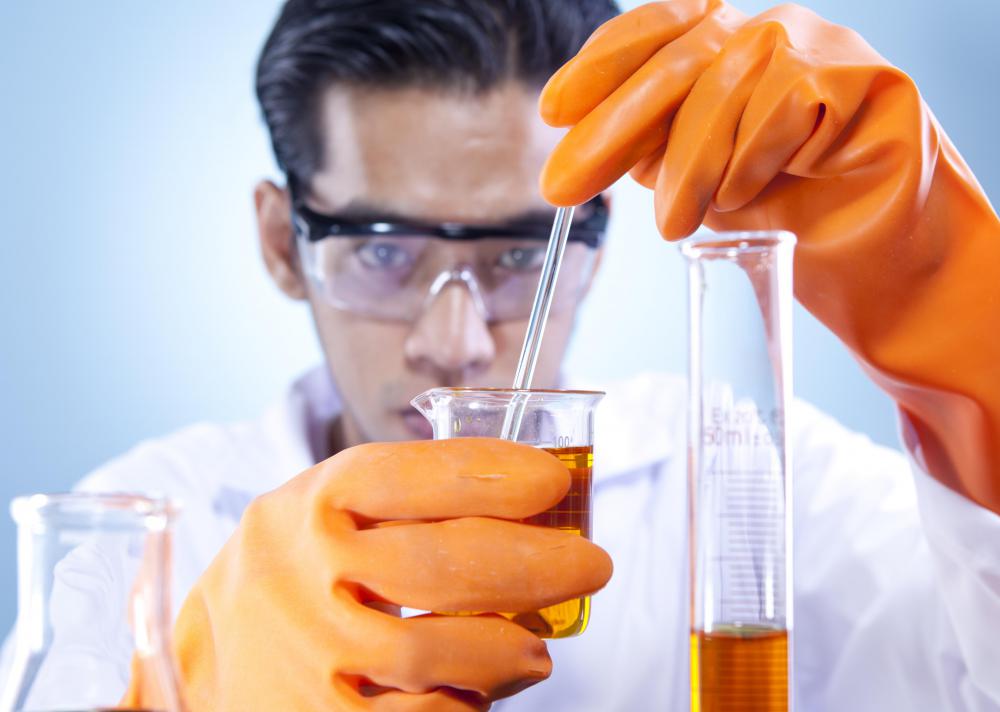At PracticalAdultInsights, we're committed to delivering accurate, trustworthy information. Our expert-authored content is rigorously fact-checked and sourced from credible authorities. Discover how we uphold the highest standards in providing you with reliable knowledge.
What Does a Marine Chemist Do?
A marine chemist is a scientist who focuses his or her career on understanding the chemical composition of the ocean and studying the makeup of underwater structures and landmasses as well as identifying the effect of sea life on different water qualities. Research is the main task of any marine chemist, although the scope and nuance of the research varies significantly from person to person. Some marine chemists study changes in microorganism cultures in tidal waters over time, and others look at prehistoric cells and compounds stored in glaciers to draw conclusions about how the ocean has changed. Many chemists work in the field, often engaging in extensive undersea research at stations all over the world, and others are primarily academic, publishing research, presenting papers and seeking to deepen general scientific understanding of the ocean.
The opportunities are numerous, but all marine chemists have a few things in common. They are focused on a cellular-level, organic study of ocean waters and tributaries, for one thing. Hands-on research, lab work, data analysis and paper publication all play into marine chemist jobs, no matter where the scientists are located or how they are focused in their careers.

A marine chemist's job description changes depending on the scientist's main goals, but for most, the job entails a lot of field work. Field chemists spend time in or near the ocean, personally collecting samples. Common settings include deep-sea trenches, underwater mountain ranges, coral reefs and shallow tropical waters. These chemists generally believe that identifying the particulate matter in the oceans will shed light on the oceans’ history, their formation and how they are both similar to and different from land-based terrains on a chemical level.

Not all marine chemist jobs are so hands-on, and scientists don't need to travel far from home or spend long stints at sea to contribute to the research field. Many marine chemists work primarily in labs, sending time analyzing slides and drawing conclusions from samples collected in often-disparate locations. These chemists can be interdisciplinary and might combine elements of marine biochemistry or oceanic geology into their studies.
Some universities offer specific marine chemistry degree programs, but not all do — at least not at the undergraduate level. Undergraduates hoping to become marine chemists can often break into the field by studying general chemistry, marine biology or biochemistry, to name a few. A degree in the hard sciences and an interest in understanding what makes the sea the sea, from a scientific standpoint, are the key requirements. To advance in the field, students usually must pursue further studies, leading to at least a master’s degree but more often a doctorate. Doctors of marine chemistry enjoy the most latitude when it comes to organizing their research, choosing their jobs and setting their own schedules.
AS FEATURED ON:
AS FEATURED ON:












Discuss this Article
Post your comments